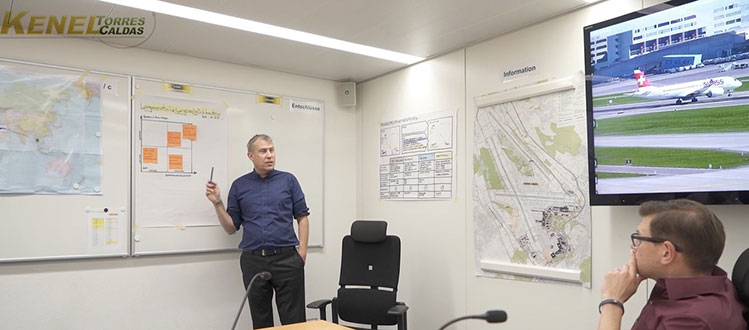Michel Kenel, owner and Managing Partner, Training Expert and Scenario Engineer, Kenel & Torres, interviewed by Marta Dimitrova.

Michel Kenel, owner and Managing Partner, Training Expert and Scenario Engineer, Kenel & Torres: “An airport is an extremely complex organisation with many involved or affected stakeholders. The coordination between the crisis leadership at the top executive level and the crisis management and emergency response organisation is extremely important.”
As security threats continue to evolve, it is essential that the aviation industry invests in improving the resilience of its crisis management.
Key is having the right training, at the right level, with the right scenario. “In crisis leadership courses, the main points are the counter-intuitive,” says Michel Kenel, owner and Managing Partner, Training Expert and Scenario Engineer, Kenel & Torres. “How to ensure decision making at the right level and not to extinguish operational ‘fire’. In crisis management courses the emphasis lies on how to ensure effective information exchange to create situational awareness, how to use analytical problem-solving processes, and how to lead and hold effective briefings.”
The company provides workshops and training programmes that are tailor-made for each customer, and designed to be methodologically effective and practical. “We see ourselves as personal trainers, personally responsible for our customers’ success,” Kenel comments.
Lufthansa Group, including Austrian Airlines, Brussels Airlines, Eurowings, Germanwings and Swiss, is a key customer. “Lufthansa Group wanted to harmonise the structures of its Crisis and Emergency Response Teams. They chose the model of Swiss Airlines. I, therefore, designed a methodological bottom-up approach in a total of three modules, two days each, to reach the given training objectives,” says Kenel. “In 2017, we successfully trained the team leaders in two modules. Each module consisted only of short sequences of theory; the main emphasis lies in practical training done by exercises with a variety of scenarios to challenge the participants. Additionally, we are doing an emergency exercise for Lufthansa CityLine.”
Looking ahead, Kenel is hoping to attract airports to the company’s portfolio. “An airport is an extremely complex organisation with many involved or affected stakeholders. The coordination between the crisis leadership at the top executive level and the crisis management and emergency response organisation is extremely important,” he explains. “We did a lot of research this summer, answering two questions: 1. When under pressure, crisis leaders tend to do intuitive mistakes; thus, what are the main counter-intuitives on the executive level that will ensure effective crisis response? 2. What are the most important and generic best-practices for a crisis organisation to be successful? We found very coherent answers to those questions, which makes us the very specialists in optimal solutions regarding training content, methodology and scenario. I am positive that we can provide airports with exercises, simulations, and especially with scenarios they never dreamt of, because we are used to thinking the unthinkable.”







